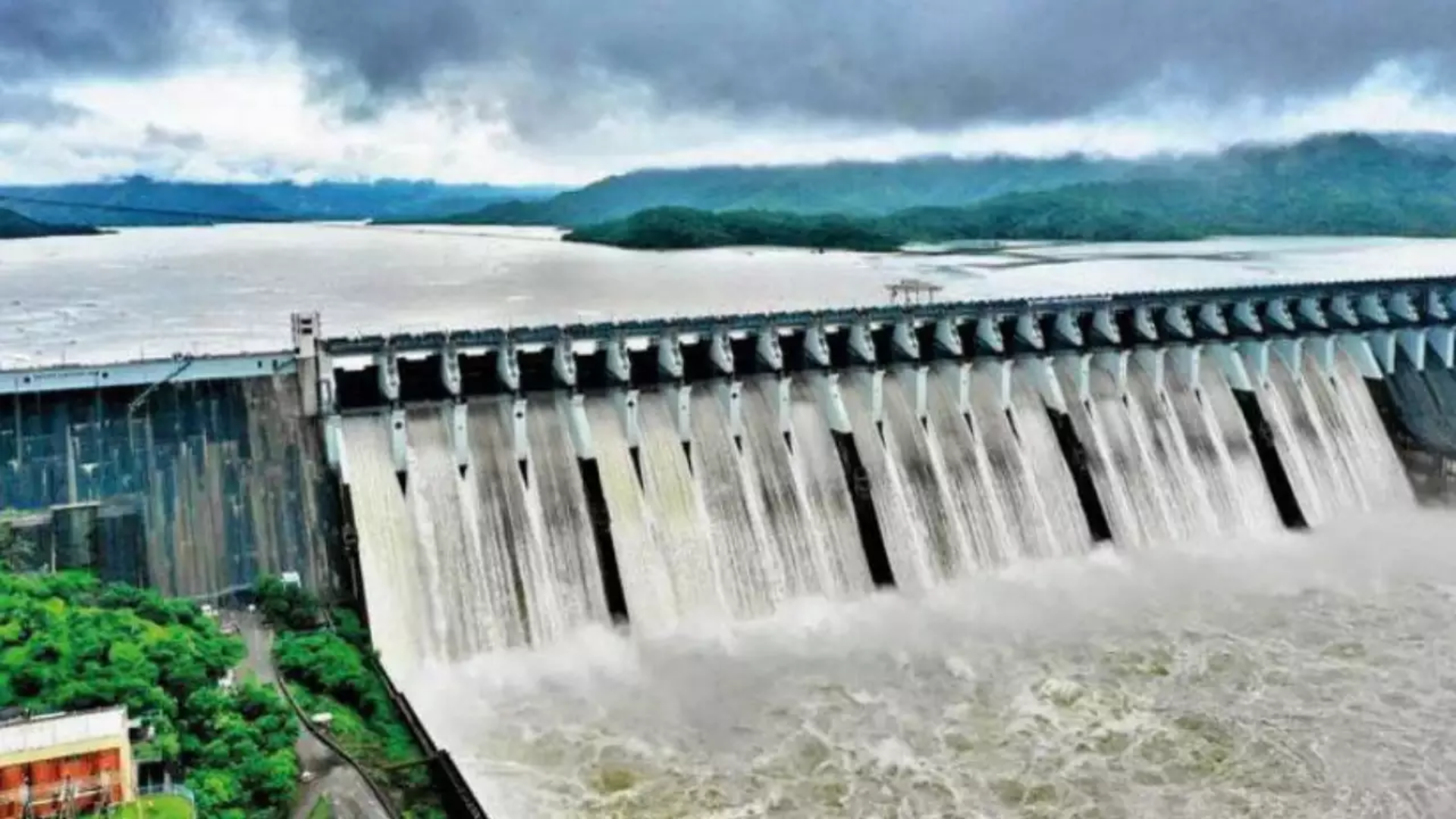Gujarat is preparing to request a larger share of the Narmada River’s waters from Madhya Pradesh. This request comes as the 45-year water allocation period is set to end on December 12. Gujarat wants more water due to rising demands for agriculture and industry, according to two officials from the state.
Background of Water Allocation
In December 1979, the Narmada Water Disputes Tribunal (NWDT) allocated river waters to four states: Gujarat, Madhya Pradesh, Rajasthan, and Maharashtra. At that time:
– Gujarat requested 22.02 Million Acre Feet (MAF) of water, including 20.73 MAF for irrigation to cover 126.26 lakh hectares of land.
– Madhya Pradesh initially asked for 24.079 MAF, including 23.279 MAF for irrigation and 0.80 MAF for drinking water and industry.
The final allocation was different from these requests:
– Madhya Pradesh got 18.25 MAF
– Gujarat received 9 MAF
– Rajasthan was allocated 0.50 MAF
– Maharashtra received 0.25 MAF
This distribution was based on factors like the catchment area, water scarcity, and the contribution to the river’s flow.
Gujarat’s Current Situation and Request
A Gujarat government official explained that Madhya Pradesh has been using less than 10 MAF of its allocated water on average. For example, in 2022-23, Gujarat used 9.21 MAF out of its 11.27 MAF allocation, while Madhya Pradesh used only 8.84 MAF of its 22.85 MAF share. In 2020-21, Madhya Pradesh used 9.39 MAF out of 24.61 MAF.
Gujarat’s officials argue that since they have been fully using or even exceeding their water allocation, they need an additional 8-9 MAF. They plan to present this demand to the tribunal after the December deadline.
Challenges and Considerations
Before making this request, Gujarat must also address issues like flood management, especially after heavy rains in Madhya Pradesh in September 2023 led to the opening of several dam gates.
Importance of the Sardar Sarovar Dam
The Sardar Sarovar Dam in Gujarat is a key part of water management for all four states. It is India’s third-highest concrete dam and the second-largest globally in terms of concrete volume for gravity dams. The dam’s height was increased to 110.64 meters in June 2004 when Narendra Modi was Gujarat’s chief minister. Later, as Prime Minister, Modi expedited approvals to complete the dam.
In 2017, the Narmada Control Authority (NCA), established in 1980, allowed the sluice gates to be closed, allowing the dam to reach its full height of 138.68 meters. Modi inaugurated the completed dam later that year.
Future of Water Allocation
The upcoming negotiations for redistributing Narmada River waters will be crucial for future water management strategies in the region. This reallocation will affect agriculture, industry, and overall development in Gujarat, Madhya Pradesh, Rajasthan, and Maharashtra for many years to come.
Key Points
1. Gujarat’s Request: Gujarat wants more water from the Narmada River due to growing needs for farming and industry.
2. Historical Allocation: In 1979, the NWDT divided the river’s water among Gujarat, Madhya Pradesh, Rajasthan, and Maharashtra.
3. Current Use: Gujarat has been using all its allocated water, while Madhya Pradesh has used less than half of its share.
4. Future Negotiations: After December, Gujarat will formally ask for more water. These talks will impact water management for years.
5. Sardar Sarovar Dam: This important dam helps manage water for the four states and has been a major project since 1961.





















